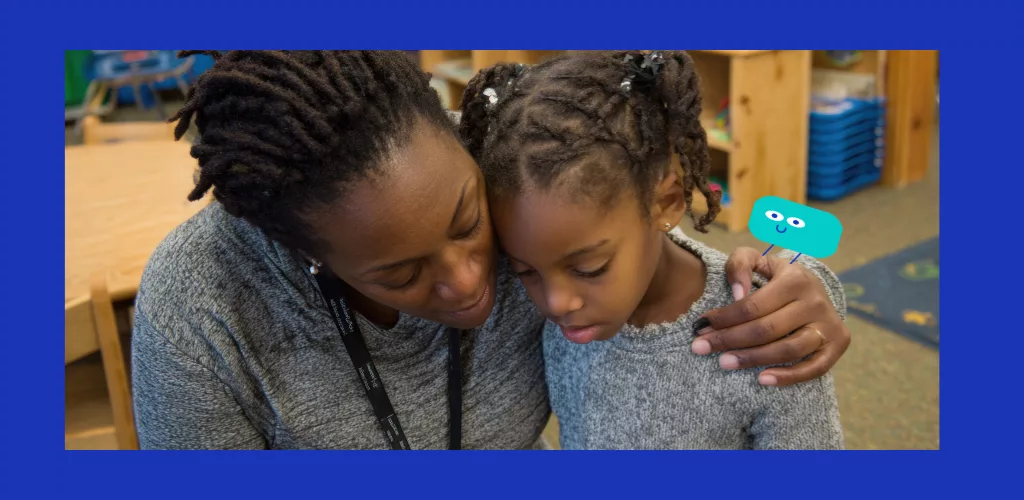After Thursday evening's announcement by the President of the Republic, my social networks (WhatsApp, Facebook, LinkedIn and Instagram) are flooded with messages about working at home with the kids!
France has come a long way on teleworking in the last three years, but the culture of presenteeism is still very strong. We still have some way to go in this area, but this health crisis will probably help to speed things up.

Working with children at home is still a taboo subject As we know, many managers are reluctant to telecommute, so telecommuting with children isn't even on the agenda... Preconceived ideas on the subject inevitably resurface. On the employer's side: my employees are going to be doing the machines, the cooking, looking after the children... It's impossible to work properly under these conditions... And on the employee's side, especially if you're a woman: you've "imposed" one or more maternity leaves on your company. We've already used up all our sick days for gastroenteritis and flu. So if on top of that we work from home with the kids, we think we're in for a closet job, or no bonus in 2020...
#absolutetabou!
I - Seven resolutions to change the game!
If you're like me and have small children (a 7-year-old "big kid" and 2-year-old twins), the truth is that Sunday evenings are often just as tired as weekday evenings. Looking after children full-time is potentially exhausting, both physically and emotionally. So, when it's announced that day nurseries and schools are closing, you panic at the thought of spending several weeks with your children at home, while still having to work.

So take a breath, put things in perspective and make some good resolutions right away:
1. We set work schedules
Set yourself a work schedule that's adapted to your children's rhythm. You can start as early as 7 a.m. with your e-mails while the children are asleep or having breakfast, and activities that require your concentration when they're napping or playing in their room. Personally, I'm a fan of the 9-11 p.m. slot, which means I can stop work at 5 p.m. and resume when the kids are in bed. In short, make your own schedule according to the age of your children!
2. Setting up a workspace
If you don't have an office and your children don't need to be supervised, try setting up your own space in the kitchen or bedroom. Otherwise, the living room table may do the trick if your children need supervision.
3. Establish clear rules
You don't mix work and daily chores. The dishes, the washing machine or folding the laundry can wait until the evening. If you have to deal with work, the kids and the house during the day, you're not going to make it.
4. Involving children
We warn them and explain the situation to them, whatever their age (children understand everything): "It's an exceptional situation, Mum and Dad also have to work, so you'll have to listen and try to be calm, especially if you're on the phone". It doesn't necessarily work, but at least the child is aware of the situation.
5. We also plan the children's day
Draw up a daily schedule for the children with their activities, and review it together in the morning. If your children know what they'll be doing all day, they'll be more independent and less likely to interfere with your work.
6. We take breaks
Is everyone running around in circles and losing their cool? It's time to take a break. If you don't have a garden or balcony, you can go outside(taking care to observe hygiene and safety rules, of course!) If you don't want to go out, improvise a family mediation session (apps like petit bambou or books like "calme et attentif comme une grenouille" can help).
7. Let's get rid of our guilt!!!
It's an emergency situation, so we're doing what we can: it won't be the end of the world if you put your kids in front of Peter Pan just to be on the safe side!
In short, we need to adopt the right frame of mind and get organized... Because we're all going to be in the same situation, and not just the women...
II- Let's change our mindset!
After more than 10 years of telecommuting and managing international teams in human resources, I can testify to the fact that it's possible to combine telecommuting with children at home. Especially when everyone's in the same frame of mind.
In my previous (Anglo-Dutch) company, the telecommuting culture was widespread, for reasons of organization (teams scattered all over the world), logistics (fewer offices available, more employees at home) and quality of life (work-life balance is much more important in the Netherlands than in France). When I first took up a position in an international team, I was shocked to hear children playing in the background during my teleconferences. Even more so when one morning, in the middle of a teleconference with colleagues from London, Singapore and Kuala Lumpur, my manager at the time (VP HR of a 15,000-strong entity) said "sorry, I'm leaving you for 20 minutes, I've got to take the kids to school". I thought to myself: "She's got a nerve...". Then, as I was increasingly confronted with this kind of situation and saw that it didn't shock anyone but me, I realized the unconscious biases I'd developed as part of our good old French working culture.
In the end, I got used to this new way of working. Knowing that we were all teleworking (men and women), for different reasons (scheduling constraints, office management policy, deliberate choice not to work on Wednesdays to manage the children), we were kind to each other. And little by little, I stopped paying attention to a dog barking or a child crying in the background...
I also remember a Malaysian colleague who was breastfeeding her child one day during a teleconference, because it was 8pm at home and that was the only time she could get together with Europe. Nobody said anything, because it was already good that she was joining us.
So I've often worked from home with the kids. It's true that it's not always easy, but it's feasible, especially when everyone knows each other's constraints and when these constraints are (finally) shared.



III- Let's apply some simple rules
To make it work with your company and colleagues, follow a few simple rules:
1. Don't hesitate to ask for help
If we're a couple, we remember that there are two of us. It's not necessarily Mom who stays at home alone with the kids while working. We stay together, we're the "parent team" and we take turns depending on the urgency of our jobs. For single parents, we try to call on family or friends to take turns looking after the children. Solidarity in times of crisis!
2. We state our situation clearly
You inform your colleagues that you work from home with X number of children of such and such an age, so there will be no teleconferences during lunch and snack times. (Remember: exceptional situations call for exceptional working methods).
3. Announcing the color
Are you attending a teleconference with your children in the same room? Tell them at the start of the meeting: I'm at home, so it's normal if you hear background noise, or if I have to leave because my eldest is strangling his little brother.
Conclusion
Yes, it's not an easy situation, and everyone will have to adapt more or less depending on the child's age.
But we're lucky enough to have all the technological tools we need to get organized and keep in touch with our customers, colleagues and suppliers.
And our health, and that of our elders and children, must remain our priority. So let's take a step back from this situation, which will have the merit of strengthening family ties and, I'm sure, encouraging telecommuting in the future!
A little bonus: on Monday, I'm going to share with you my suggestions for activities with children in nursery or primary school.
Solenne.
Founder of Soft Kids




0 comments